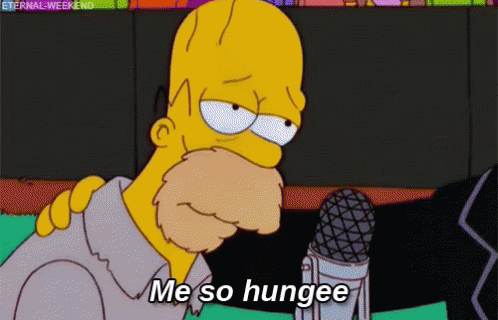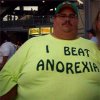Stop speaking in absolutes like "X is easier". What is easier to adhere to will vary for each individual. Those kinds of statements make no sense and are not true. And please stop using YouTube as your only source of information and making baseless claims.
If your goal is to lose weight, and keep it off, it doesn't matter. Whichever pattern is more sustainable will elicit the better long term outcome. You're cherry-picking the stuff you're interested in, and so are those videos. If you type "calorie restriction vs IF study", some studies fall one way, some fall the other, and most of them show very similar outcomes for both protocols. In other words, there's no strong evidence for any of the stuff you're talking about. If he fasts, but eats more than normal during his meals, it won't work. He would lose weight anyway if he restricted his calories, and this can be done in other ways; this is a simple fact, and is all I was saying.
Just to give you an example, these are just some of the top results from googling, all from peer reviewed medical journals. As a note, CR = Caloric restriction, IF = Intermittent Fasting, ADF = Alternate day fasting:
https://www.ncbi.nlm.nih.gov/pmc/articles/PMC6304782/
Results
Eleven trials were included (duration range 8–24 weeks). (...)
The intermittent approach determined a comparable weight-loss or percent weight loss when compared to the continuous approach. A slight reduction in fasting insulin concentrations was evident with IER regimens (WMD = − 0.89 µU/mL; − 1.56 to − 0.22; p = 0.009), but the clinical relevance of this result is uncertain. No between-arms differences in the other variables were found.
Conclusions
Both intermittent and continuous energy restriction achieved a comparable effect in promoting weight-loss and metabolic improvements. Long-term trials are needed to draw definitive conclusions.
Another:
https://pubmed.ncbi.nlm.nih.gov/24993615/
Accordingly, the goal of this review was to compare the effects of IF with daily CR on body weight, fasting glucose, fasting insulin, and insulin sensitivity in overweight and obese adults. Results reveal superior decreases in body weight by CR vs IF/ADF regimens, yet comparable reductions in visceral fat mass, fasting insulin, and insulin resistance. None of the interventions produced clinically meaningful reductions in glucose concentrations (...) more research is required before solid conclusions can be reached.
Last one:
https://www.ncbi.nlm.nih.gov/pmc/articles/PMC8749464/
"CR has been shown to reduce inflammatory processes in rodents, primates, and humans (Flanagan
et al,
2020). IF shows similar outcomes in humans (Patterson & Sears,
2017), although the effects have not been systemically studied."
"CR delays and diminishes the occurrence of induced and spontaneous cancer throughout aging in mice (Weindruch,
1992; Brandhorst & Longo,
2016) and rhesus monkeys (Colman
et al,
2009; Mattison
et al,
2017). Similar observations have been made for IF in rodents.
(...)
Collectively, CR and IF seem to bear anti‐neoplastic potential, but decisive clinical trials are rare and urgently needed."
Last one for real:
https://www.ncbi.nlm.nih.gov/pmc/articles/PMC4516560/
"Results from these intervention trials suggest that these eating patterns result in weight loss, with modest and mixed effects on glucoregulatory markers, lipids and inflammatory markers. However, there is little evidence to suggest that modified alternate day fasting produces superior weight loss or metabolic changes in comparison to standard energy restriction regimens."
"Although limited, these data suggest that alternate day fasting regimens can result in modest weight loss. These data also show some positive impacts on metabolic parameters, even though these studies enrolled normal-weight adults who were unlikely to show substantial improvements in metabolic risk factors. However, Heilbronn et al
6 noted that self-reported hunger on fasting days was considerable and did not decrease over time, suggesting that alternate day fasting may not be a feasible public health intervention."
Etcetera, etcetera.
Taking the findings as a whole, none of what you say has been shown to be be uniquely correlated to IF. And a lot of the benefits are from fat loss itself, which can be achieved with or without fasting. Even if some small benefit could be speculated on, it has to be put in context of real life application. If someone wants to lose weight, they're free to choose either approach, but it makes sense to prioritize whatever can be sustained over time, not some speculative stuff. If they want to experiment with IF, that's fine, might do that myself some day. However, the only way it will work for weight loss is if it somehow results in less calories. The other alleged benefits are outside the scope of what I was telling the TS, and the evidence is inconclusive for them anyway.







